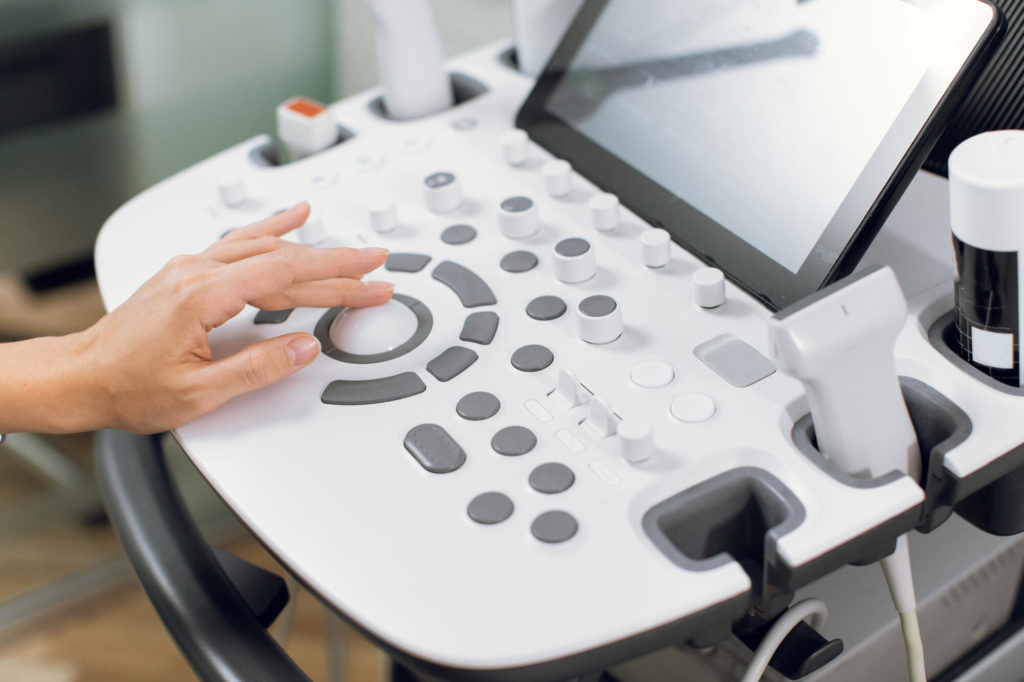If you’re interested in the workings of the brain and want to dive into the world of medical imaging, then becoming a neuro ultrasound tech can give you the best of both worlds.
Ultrasound has been around since the 1950s and is still one of the most common and effective diagnostic tools used today. Learning more about ultrasound technology and how working with the brain fits into it all will help you forge a path toward a career you’ll love.
Read on to learn everything you need to know about diagnostic medical sonography and becoming a neuro ultrasound tech.
Overview of Medical Sonography
Your first step is to get a better understanding of what ultrasound techs do and how that breaks down into specialty areas.
An ultrasound tech is a healthcare provider who creates special images known as sonograms or ultrasounds. The ultrasound transducer sends out sound pulses that bounce back, causing echoes. These echoes form images of tissues and organs from these high-frequency sound waves.
Ultrasound technicians also have other responsibilities like maintaining the imaging equipment and preparing the exam room. They must also prepare their patients for the procedure by explaining the steps and answering questions.
Being able to analyze images is also key since you’ll be reporting your findings to a radiologist.
Keep in mind that these duties can vary widely, depending on what type of ultrasound sonography you specialize in.
What Is a Neuro Ultrasound Tech?
Neurosonography, also known as neurosonology, is an area of sonography that you can choose to specialize in. A neurosonographer focuses on performing ultrasound on the nervous system and brain. This also includes the spinal cord which involves all areas of the vertebral column like the lumbar spine and cervical spine.
Neurosonographers use a special type of medical instrument called a Transcranial Doppler (TCD). This instrument uses special frequencies and beam shapes that can monitor and measure blood flow in the brain.
The ultimate goal of brain sonography is to detect abnormalities and conditions like brain infections, head trauma, and neurodegenerative diseases like Parkinson’s.
Specialty Areas
You can also break down neurosonography into further specialties based on age groups. For example, preterm babies are at greater risk for brain bleeding and other infectious conditions that can impact their development. Neurosonography is ideal for identifying abnormal growths, congenital abnormalities like cerebral palsy, and more.
Neurosonography in adult patients can range from detecting trauma, tumors, and vascular abnormalities to determining damage from issues like strokes and aneurysms.
In addition, neurosonography can help recognize certain central nervous system disorders like:
- Multiple sclerosis
- Spinal stenosis
- Myelitis
- Problems with paralysis
You can even specialize in one specific area of neurosonography, like working only with people who have multiple sclerosis.
Where Do Neuro Ultrasound Techs Work?
You’ll have your choice of work settings since neuro ultrasound technicians can work in various locations. The most common are hospital settings and neurology clinics where you’ll work with neurologists and other medical professionals.
You can also find work in research centers that participate in clinical trials and other medical research.
Some people become instructors in sonography programs, spending most of their career teaching.
How to Become a Neuro Ultrasound Tech
Getting the education you need to become a neuro ultrasound tech requires multiple steps. The main steps to focus on include:
Getting a High School Education
Your first step toward becoming a neuro ultrasound tech is completing your high school education. If you don’t have a diploma, you’ll need to enroll in a high school equivalency program.
These programs will support you in getting your diploma or preparing you to take a HiSET exam to earn a high school equivalency diploma. There are different requirements for each state, but the school will help ensure you prepare thoroughly.
It’s also helpful to have a background in healthcare and life sciences as well as math. Good communication skills are also necessary since a significant part of your job requires communication with patients and other medical professionals regularly.
Enrolling in a Diagnostic Medical Sonography Program
Once you have your high school degree or equivalency, you’ll need to enroll in a medical sonography program. You can become an ultrasound technologist after a 19-month diploma program or a 24-month associate’s degree program.
The diploma program takes a faster, less detailed approach and allows you to begin working as an ultrasound tech quickly. Some people take this approach to start their career and then go back later to further their degree.
The associate’s degree program gives you more in-depth hands-on training and helps you feel more prepared to work as an ultrasound technician.
Whichever program you take, you’ll take courses in anatomy and physiology, medical terminology, and physics and instrumentation. You’ll also learn the basics of various types of ultrasounds like abdominal, vascular, obstetrics, and emergency sonography.
You’ll learn more about the brain and how to use ultrasound equipment to evaluate for different issues.
Obtaining Nationally Recognized Certifications
First, you’ll need to look at getting a nationally recognized certification like the American Registry of Radiologic Technologists (ARRT). You’ll need to pass comprehensive exams to obtain this. Getting this credential verifies you’ve met professional standards for ultrasound imaging.
Although the state of California doesn’t require this certification, employers typically prefer to hire technicians who have this. Certifications will also help you focus your career path around jobs that involve neuro ultrasound techniques.
Finally, you can also take advanced degree courses that focus on neurosonography while you work.
Enroll in an Ultrasound Technician School Today
As you can see, being a neuro ultrasound tech involves a lot of skills but is a truly rewarding career that allows continued growth.
Your next step is finding the education you need to start a career as an ultrasound technician. Healthcare Career College will give you the high-quality education you need to start working as an ultrasound tech in the healthcare industry quickly.
We’ve been helping people in the Paramount, CA, area since 1990 and offer numerous healthcare programs. We’re committed to helping you reach your career goals and will be with you every step of the way.
Contact us today to learn more about our ultrasound technician program to get started on your new career.



